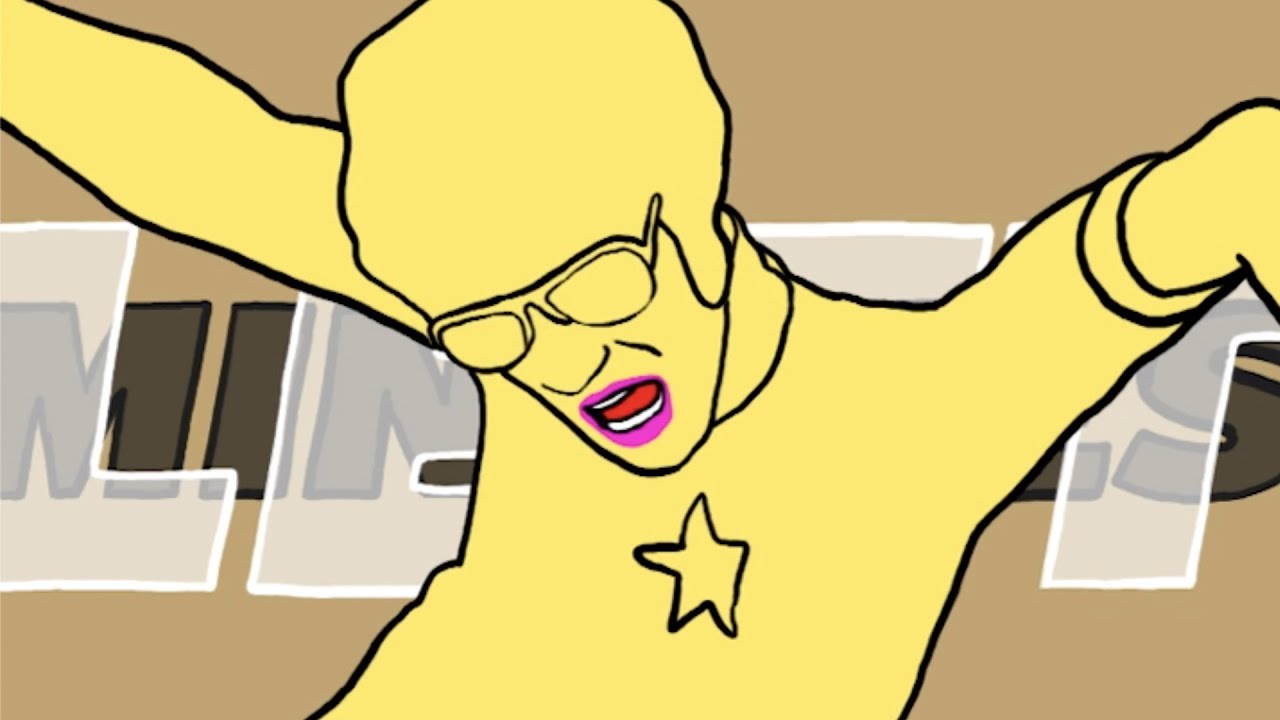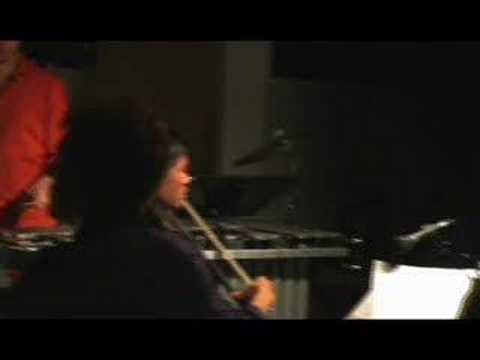Christmas 1985. Due to the unforeseen onset of my parents’ first bankruptcy my wishlist for the arrival of the fat fuck in a red suit was somewhat limited. To make matters easy for all concerned I wrote on a piece of paper: ‘If you can’t please yourself, you can’t please your soul’: Various Artists (Some Bizzare records).
The reason being that the compilation album (that was the title) had an exclusive track by my then new obsession, Cabaret Voltaire, alongside other unusual pop bands of the day such as Soft Cell, The The, Coil and Psychic TV. When the fateful day duly arrived and I spotted the album in its requisite spot under the tree (it’s not easy to hide a 12” by 12” parcel), I had high hopes my one wish was to be granted. It was.
The garish cover art, the blank sheet of paper that represented the manifesto of the government of the day, the sheer ugliness of the conceptual leftfield pop clearly did not sit well with my battle-weary Manilow-loving parents, but I could not have been happier. Running to my Panasonic record deck, I dropped the needle into its place, only to be met by the sampled howls and rhythmic loops of opening track ‘The Only Good Christian is a Dead Christian’, by Scraping Foetus off the Wheel. What the fuck was this!? The three minutes of surf melodies, screaming noise and extreme dark humour hit hard.
I then understood why my folks had given me such a look of disbelief, gathered together on this day of days to celebrate the birth of Jesus Christ. It was against a backdrop of dysfunctional and emotional turmoil that this song came into my life and introduced me to the work of Jim Thirlwell, aka Clint Ruin, aka Frank Want, aka Foetus. I soon realised this was the beginning of a very long term relationship.
Over the next few years, Jim Thirlwell became my psychiatrist, my late night comedian, my dark angel expressing emotions of the soul that I hid during the day under a hip hop loving exterior. Genre-busting albums such as Nail, Hole, and Thaw drove home his twisted worldview via delicious lyrical puns and audio experiments that ranged from orchestral beauty to guttural grind, via big band swing and everything else in between.
Of course, in the years since that intense period of musical evolution, the Foetus project has stepped back from the edge of insanity: an album was quietly released on Sony, and Jim even ended up working for MTV. He subsequently recoiled from the standard record label game, took tighter control of his own material, and started communicating with his hoards of fans via the wire, even experimenting with releasing albums exclusively available from the official Foetus website.
The last album, Love, released in 2005, was a wonderful update on the sound of Nail, with huge slabs of fractured noise, treated vocals, and orchestral majesty, so to say I was excited to hear Hide upon its release at the end of 2010 is an understatement. I was not disappointed. Both challenging and entertaining in equal measures, matching relatively easy-on-the-ears tunes (‘Paper Slippers’) with operatic excess (‘Cosmetics’) and dramatic orchestral beauty (‘Stood Up’), Hide is, quite simply, the best summation of all things Foetus to date.
So, first things first, what’s the story behind Hide? There seems to be an apocalyptic theme throughout: destruction of the earth, personal relationships and trust in humankind.
Jim G Thirlwell: Hide was actually created over the course of about four years. Simultaneously I was also working on The Venture Bros. and Manorexia, among other things. The album was written during George W. Bush’s reign in the US and is informed by the culture of fear that is shoved at this country by the neo-cons. That time felt like it was the end days, with his talk of crusades, and with the Christian right having such a stronghold. It’s hard to believe that an agenda such as teaching creationism alongside science in schools is actually taken seriously in this day and age. After years of progressive brainwashing people are willing to pull the lever on their own execution. If you had told me 15 years ago that the world would be teetering on the brink because of a religious war I would have laughed.
A lot of your lyrics have references to religious imagery, mythological characters, and real world problems, all interspersed with a dark edge, often via the use of catch’em-if-you-can puns. Prior to sitting down and adding words to a track, do you scour the library reference books or do these ideas come first and the music second?
JGT: Sometimes I do some research, yes. With ‘Sisyphus’ on the new Foetus album I did some reading on Greek mythology and that bled over in to some other parts of the album. I jot things down in notebooks when they fire my imagination – often names of phenomena, phrases or afflictions, lines that come into my head, and come back to them later. Things that I’m reading at the time often bleed into my lyrics; I was reading [Ishmael Beah’s] A Long Way Gone about child soldiers in Sierra Leone when I was working on that song, and they turned up in one of the verses. Lately I like to write about big issue universal things, I suppose; there’s a place for the mundane in writing too.
Do you find it increasingly difficult reviving the Foetus voice/persona or, given the history, is Foetus a role you slip back into upon necessity?
JGT: The Foetus voice or persona changes all the time – it has changed much over the past few years as I shed things I feel that I have been through and move on to trying different ways of singing, textures, arrangements. I think there is still more to be done with Foetus as a vehicle. It’s all aspects of me. I don’t see it so much a persona as communicating different things sometimes from different viewpoints, composite persons and compound subjects. I wouldn’t want to be doing the same thing as I was doing in, say, 1995, or 1985, or 2001. Having said that, I need my other outlets too, I wouldn’t want to be tied to one project.
Another part of the history of Foetus are the media-baiting pseudonyms that always incorporated the word Foetus: Foetus Art Terrorism, Scraping Foetus off the Wheel, Foetus Inc. and so on, with my own personal favourite being Foetus All-Nude Revue. Did it become more and more stressful thinking up new revisions of the name, hence the eventual slimming back to just Foetus? Or was the less confrontational Foetus moniker to be expected when you joined forces with Sony for the release of Gash?
JGT: The pseudonyms were not intended as media-baiting; that would presuppose that media would give a shit. I haven’t created things with an eye to how they would be perceived by the media! The work comes first. The work is all important. The name variations were more a dada-ist thing, but each one had its own ‘sound’. But I got sick of it. I felt I had done it and I was over it. That was over twenty years ago.
Aside from the music, one of the other striking aspects of your releases is the black-red-white (and a splash of yellow if required) artwork, and the use of four letters for every album title. Clearly these ‘rules’ were laid down at the conception of the Foetus project. Did you write these defining rules down anywhere on a piece of paper, and if you did, what other rules did you add to the mix?
JGT: No I didn’t write these rules down, there’s no Foetus Bible (yet). They are more like thru-currents in my work, which allows this legacy to become a unified body of work. Once I had done the first album sleeve, it felt natural to develop that. There are certain ‘formats’, or elements that link the works, the legacy, though the musical content is wildly disparate.
With the use of black-red-white: was this a visual connection to the anarchist use of black and red, or am I being a little too obtuse there?
JGT: Not anarchist. The original muse was Nazi and communist propaganda and blurring the two. I was also interested in print techniques – flat planes of colour. Then packaging and pop art entered the equation. I still feel there’s a lot I can do with that colour palette.
While talking about the artwork, why did you deviate from the plan with the art for Gash? Is the original artwork the image that’s projected on the big screen behind you but the label refused to allow such titillating artwork, or did you just go off track to make the album something new and different for a supposedly larger audience?
JGT: At that time I felt I had made a really explosive graphic statement with the Butterfly Potion EP sleeve and was wondering what I would do to move somewhere else. I was recording that album at a studio in Times Square – the room looked out on this big Coca-Cola bottle with a hydraulic cap that lifted up and down. At the end of each session I’d leave the studio and walk out into Times Square – this was a bit before the Disneyfication of the area, when they put up the mega lights on all the buildings. I would look at the big screen there above the NYPD kiosk, it was owned by Sony at the time. I thought it would be a cool idea to design something which was projected on the screen and then photographed; placing my artwork into an environment. The people at Columbia (which is owned by Sony) dug the idea. The design I came up with included a topless girl in tattoo flash style, and they said we couldn’t show her nipples! The drawing was too lascivious, I suppose. So we removed the nipples and it was still too much for them so we had to put a bra on her. The nipples were later restored. Anyway, we continued with the idea of using that big screen. When the album was being released they ran ads on it, which we captured when Alex Winter directed the video for ‘Verklemmt’. And then when the ‘Verklemmt’ video was finished they showed it on the big screen. We put Times Square back up on its own screen, very meta. At the time that was about the biggest graphic display there – now it’s the smallest!
While Gash has its detractors, I happen to think it sits very well in the story arc of Foetus. One of my favourite tracks ever is the nine minute epic ‘Slung’ which combines rock noise of the day and a mutha-fuggin’ big jazz band. It has to be said, when you go for the big band jazz groove (including your tracks under the Wiseblood guise) the results are always nothing short of perfection. Have you ever thought about putting together a full album of Big Band Foetus music?
JGT: I will definitely do a lot more work with brass, and with large ensembles, but probably not exclusively in the big band idiom.
Going back, the so called ‘classic’ albums, the Hole, Nail and Thaw trilogy, were no doubt limited in scope due to the technology of the day. While you were based in London, did you ever think, ‘If only I had four weeks in ZTT’s Sarm West Studio, then I could really show them what can be done’? I have often thought your way with words and visuals would have supplemented Paul Morley’s media savvy perfectly, or were you just glad to have Stevo (Some Bizzare) on your side?
JGT: One always works with the weapons at hand. Actually, Hole represented a big technological jump as all my records before that had been made on 8 track, and Hole was my move to 24 track. There was a big leap in sound between Ache and Hole. I had what I needed to make that album. Some Bizzare facilitated that. I wasn’t trying to ‘play the media’ – maybe it was perceived that way because of the huge posters all over London!
In the 80s were you eyeing up Fairlight CMIs when they were released, or did you know such budgets would be out of reach and so made the best you could with the tools available?
JGT: I used the Fairlight extensively on Nail. Fairlight had its own onboard computer and sequencing. Within a couple of years it was almost obsolete for me as I moved on to the first generation of Akai S-series samplers and an Atari computer, among other things. Those were my weapons of choice on Thaw, but the difference was I had those for pre-production, whereas the Fairlight I was using while the studio clock was ticking. Again I think there was a big shift between Nail and Thaw.
Over the years, you have Foetus-ised all sorts of genres. Are there any that you have tried and not yet mastered?
JGT: I think I combine genres that haven’t been melded before and smash them or caress them with my own sensibility into something sometimes only half-familiar. I think I want to delve more into opera and continue into contemporary composition. There are certain things I have no interest in touching, but within the context of The Venture Bros., depending on the demands of the script, I can be called on, or inspired to, appropriate just about any style. On The VB’s soundtrack album I touch on fairground music and barrelhouse blues. But using a ‘genre’ is not my sole starting place for a piece; you are at the service of the song or composition or idea, and the instrumentation takes it into a certain territory.
Can I ask a simple question? Why Manorexia?
JGT: It’s the term for male anorexia but I also see it as an analogy for the spiritual starvation of man- (and woman-) kind. And also man-lust. I’m only half kidding.
Did you get many copies of The Radiolarian Ooze returned as faulty due to the CD skipping section during ‘Edison Medicine’?
JGT: I put a warning on the CD which says ‘certain musical elements on this album may cause the listener to believe the disc is faulty’ but I did get some people write to me complaining about that and I had to explain it wasn’t the disc skipping. In fact, on both the Vein and Venture Bros. CDs the manufacturers contacted me believing the masters were faulty and I had to ensure them that the ‘flaws’ were musical elements. I anticipate that that might be the case on the new Manorexia album too, as there are some quite distressed moments.
You have recently released two albums under your real name, JG Thirlwell, (the full-on spy drama band excess of the Venture Bros. soundtrack and a collection of John Zorn-affiliated chamber quartet revisions of Manorexia material). In 2010, do you find the Foetus name a bit of an albatross and so with your non-vocal material are trying to disassociate the connection?
JGT: No, I don’t find Foetus an albatross; it’s more like a pelican. I’m not trying to disassociate – aren’t we talking about a Foetus album I just released? Foetus has changed constantly over the last thirty years, musically, conceptually and technologically. Each project I do informs the next. Manorexia is very important to me too. The Tzadik album [Manorexia: Mesopelagic Waters, released on Tzadik] was primarily billed as JG Thirlwell as it is part of their composer series, and they use the composer name up front. The Venture Bros. album is me as a score composer, hence the title, but in some ways the material is a like an extension of Steroid Maximus – it gives me a chance to flex those tendencies of that project.
When Adult Swim approached you about scoring a cartoon did you ever have doubts, or are you a fan of the animated form?
JGT: I used to watch them when I was a kid, obviously. I’m sure for myself and a lot of other people, Carl Stalling’s scores were their first exposure to classical music. His arrangements were incredible dense, detailed and frantic. Though I am not a big student of the cartoons being made now I think there are people doing interesting things with the form. I also enjoy Superjail! which is on Adult Swim, it’s surreal and bloody. The Venture Bros. is unusual because it is the only cartoon on Adult Swim using cell animation. My initial reaction was I thought it would interfere with my other plans, but I decided not to be so rigid and I’m glad I’m doing it.
How early on in the process of making an episode are you involved? Do they wait until an episode is complete before showing an episode to you, or, are you involved from the start of the writing/storyboarding?
JGT: I’m not involved with the writing but I get the animatic as soon as it’s ready. The animatic is the storyboard with dialog embedded in it, and camera moves. That is what they send to Korea, where a lot of the animation is done. I like to work a long way in advance – I watch it and block out musical ideas, sometimes re-editing cues I’ve already written, and make notes for new compositions. I sync them up and then watch it with director Jackson Publick. We talk about what works and what doesn’t. Since we are watching essentially an animated storyboard, sometimes it’s not always clear to me what’s going on in the action, and I have to quiz him about it. After I’m done we review it again and I tweak it with the director’s further comments. We get deep into the characters’ motivations, conflicts etc. They are heavily into backstory and mythology of the characters on the show. There’s a lot of twisting between emotions for a bar here and there.
Once the animation is edited then it is mixed here and they add the sound design and score. I always found this a bit heartbreaking because the audio volume hierarchy is 1) dialogue, 2) sound design and 3) the score, which is always too low for me. I would always like the score to be louder. It’s helped me to learn some tricks about scoring. Often the times you want the action to be pumping, the sound design is pumping too and big orchestral sounds can come across weak if they are not loud enough. If your score is low in the mix, hi-frequency sounds like hi-hats, glockenspiels and triangles will cut through even if you can hear anything else. That can be OK if you just want to propel the scene, but not if you want to hear what else you’ve written.
If a scene is very talky I try to use low strings or sounds that don’t interfere with dialogue, timbres that are not in the same frequency as the voice. Then the score can be louder. Unfortunately I don’t get to attend the mixes. I went once and they didn’t invite me back!
Have they ever rejected a piece of music you have submitted for a particular scene, or by the time you complete a piece of music you and the producers have figured out what’s required?
JGT: I work pretty closely with Publick on figuring out what the score should be in terms of tempo and mood, and where it should go, both before I start and after I’m done. There are some parts they replace but they may end up in another episode.
Do you have a musical archive which you dig into when they ask for a piece of music for a chase scene (for example). In other words, is there a folder on your computer for ‘chase scene’ music, and another for ‘love scene’ which you dip into according to the demands for a particular episode?
JGT: I have a computer dedicated solely to music and software which I keep offline and have a dedicated version of iTunes which only contains a database of Venture Bros. cues. I mark them with keywords and try to keep it up to date so I can quickly search, for example sentimental, action, suspense, intrigue etc. That can be helpful. Publick also has a good memory for what we’ve done.
Will there be more volumes of Venture Bros. albums?
JGT: I hope so – it’s up to the Cartoon Network’s label Williams Street to pick up the option. They have options on two more Venture Bros. albums. I have a lot of great VB’s material waiting to be polished, put into album form completed and unleashed.
A few years back you foresaw the whole ‘music should be free for all’ climate that now permeates downloading culture. You are clearly not a believer in the power of the P2P networks. How do you see the next stage of the so-called music industry panning out?
JGT: I don’t know but if they don’t find a way to compensate the artist, there wont be a much of a culture. The ratio of people illegally downloading my work to buying it is ridiculous, but it doesn’t translate into more people at my concerts or buying T-shirts as some would have you believe. I have a problem when people ‘distribute’ my music for free. I would like to opt out of that, please. You can hear my music on my website, facebook, YouTube, myspace etc. If I want to give it away, I will do so. I don’t need anyone’s help.
After a period of turmoil, you now seem to be enjoying the process of making music more now than ever before (from an outsider’s point of view, it would appear that Flow was the turning point). Would that be true, and if so, which aspect of music making gives you the most reward, Foetus or the instrumental productions?
JGT: Both are satisfying, I like to mix it up and jump between projects, sometimes a few throughout the day. It keeps it fresh for me. It’s interesting that you mark Flow as a turning point as I cleaned up in the late 90s and from 2000 on there is this significant new and different energy. The first product of that was Flow. ‘Flow’ is what I aspired to and it was prophetic. (It’s also ‘wolf’ spelt backwards.)
And to finish off, with the release of Hide now signed off and available for all, what next for the artist now known as JG Thirlwell?
JGT: The next Manorexia album Dinoflagellate Blooms is out this June. It will be released in stereo and 5.1 surround sound (in the same package). I’m really excited by it, and it makes me want to delve more deeply into multi-channel work. I will be scoring a film, The Blue Eyes, directed by Eva Aridjis. The next Freq_out installation will be in Moscow in September.
For more information on Jim Thirlwell and his various projects, please visit foetus.org





